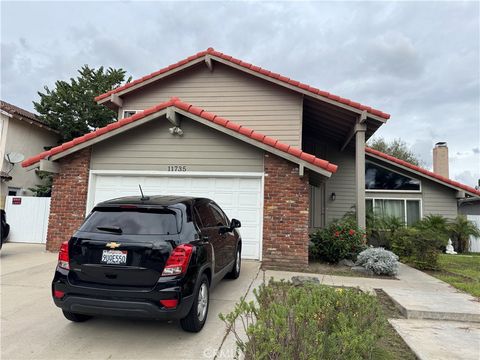Serving Fountain Valley and Orange County communities for over 35 years. (714) 343-9294 MICAH STOVALL #DRE01240489 Real Estate
Real Estate Just Listed Today in Fountain Valley CA
-
$659,990
17168 Newhope #222
Fountain Valley, CA -
$1,550,000
18021 Roch Court
Fountain Valley, CA -
$755,000
17200 Newhope St #23
Fountain Valley, CA -
$2,398,000
17413 Siena Lane
Fountain Valley, CA -
$889,000
17200 NEWHOPE St #31
Fountain Valley, CA -
$1,699,000
11735 Quartz
Fountain Valley, CA -
$568,900
12109 Sylvan River Riv #131
Fountain Valley, CA -
$849,900
15928 Prell Court
Fountain Valley, CA -
$1,559,000
10763 El Centro Avenue Ave
Fountain Valley, CA -
$1,500,000
17215 Buttonwood St
Fountain Valley, CA
Lot SizeN/A
Home Size1,112 sqft
Beds2 Beds
Baths2 Baths
Lot Size3,673 sqft
Home Size1,920 sqft
Beds4 Beds
Baths3.5 Baths
Lot Size6,277 sqft
Home Size1,680 sqft
Beds2 Beds
Baths2 Baths
Lot Size5,951 sqft
Home Size3,408 sqft
Beds4 Beds
Baths4 Baths
Lot SizeN/A
Home Size1,920 sqft
Beds3 Beds
Baths3 Baths
Lot Size7,201 sqft
Home Size2,232 sqft
Beds4 Beds
Baths3 Baths
Lot Size19,184 sqft
Home Size916 sqft
Beds2 Beds
Baths1 Bath
Lot Size1,303 sqft
Home Size1,402 sqft
Beds3 Beds
Baths3 Baths
Lot Size5,101 sqft
Home Size2,175 sqft
Beds5 Beds
Baths2.5 Baths
Lot Size8,185 sqft
Home Size2,119 sqft
Beds4 Beds
Baths3 Baths
-
Lot SizeN/A
Home Size1,112 sqft
Beds2 Beds
Baths2 Baths
-
Lot Size3,673 sqft
Home Size1,920 sqft
Beds4 Beds
Baths3.5 Baths
-
Lot Size6,277 sqft
Home Size1,680 sqft
Beds2 Beds
Baths2 Baths
-
Lot Size5,951 sqft
Home Size3,408 sqft
Beds4 Beds
Baths4 Baths
-
Lot SizeN/A
Home Size1,920 sqft
Beds3 Beds
Baths3 Baths
-
Lot Size7,201 sqft
Home Size2,232 sqft
Beds4 Beds
Baths3 Baths
-
Lot Size19,184 sqft
Home Size916 sqft
Beds2 Beds
Baths1 Bath
-
Lot Size1,303 sqft
Home Size1,402 sqft
Beds3 Beds
Baths3 Baths
-
Lot Size5,101 sqft
Home Size2,175 sqft
Beds5 Beds
Baths2.5 Baths
-
Lot Size8,185 sqft
Home Size2,119 sqft
Beds4 Beds
Baths3 Baths
-
$659,990
17168 Newhope #222
Fountain Valley CA Real Estate with the Largest Lots
-
$659,990
17168 Newhope #222
Fountain Valley, CA -
$1,550,000
18021 Roch Court
Fountain Valley, CA -
$755,000
17200 Newhope St #23
Fountain Valley, CA -
$2,398,000
17413 Siena Lane
Fountain Valley, CA -
$889,000
17200 NEWHOPE St #31
Fountain Valley, CA -
$1,699,000
11735 Quartz
Fountain Valley, CA -
$568,900
12109 Sylvan River Riv #131
Fountain Valley, CA -
$849,900
15928 Prell Court
Fountain Valley, CA -
$1,559,000
10763 El Centro Avenue Ave
Fountain Valley, CA -
$1,500,000
17215 Buttonwood St
Fountain Valley, CA
Lot SizeN/A
Home Size1,112 sqft
Beds2 Beds
Baths2 Baths
Lot Size3,673 sqft
Home Size1,920 sqft
Beds4 Beds
Baths3.5 Baths
Lot Size6,277 sqft
Home Size1,680 sqft
Beds2 Beds
Baths2 Baths
Lot Size5,951 sqft
Home Size3,408 sqft
Beds4 Beds
Baths4 Baths
Lot SizeN/A
Home Size1,920 sqft
Beds3 Beds
Baths3 Baths
Lot Size7,201 sqft
Home Size2,232 sqft
Beds4 Beds
Baths3 Baths
Lot Size19,184 sqft
Home Size916 sqft
Beds2 Beds
Baths1 Bath
Lot Size1,303 sqft
Home Size1,402 sqft
Beds3 Beds
Baths3 Baths
Lot Size5,101 sqft
Home Size2,175 sqft
Beds5 Beds
Baths2.5 Baths
Lot Size8,185 sqft
Home Size2,119 sqft
Beds4 Beds
Baths3 Baths
-
Lot SizeN/A
Home Size1,112 sqft
Beds2 Beds
Baths2 Baths
-
Lot Size3,673 sqft
Home Size1,920 sqft
Beds4 Beds
Baths3.5 Baths
-
Lot Size6,277 sqft
Home Size1,680 sqft
Beds2 Beds
Baths2 Baths
-
Lot Size5,951 sqft
Home Size3,408 sqft
Beds4 Beds
Baths4 Baths
-
Lot SizeN/A
Home Size1,920 sqft
Beds3 Beds
Baths3 Baths
-
Lot Size7,201 sqft
Home Size2,232 sqft
Beds4 Beds
Baths3 Baths
-
Lot Size19,184 sqft
Home Size916 sqft
Beds2 Beds
Baths1 Bath
-
Lot Size1,303 sqft
Home Size1,402 sqft
Beds3 Beds
Baths3 Baths
-
Lot Size5,101 sqft
Home Size2,175 sqft
Beds5 Beds
Baths2.5 Baths
-
Lot Size8,185 sqft
Home Size2,119 sqft
Beds4 Beds
Baths3 Baths
-
$659,990
17168 Newhope #222
Largest Price Reduced Real Estate in Fountain Valley CA
-
$659,990
17168 Newhope #222
Fountain Valley, CA -
$1,550,000
18021 Roch Court
Fountain Valley, CA -
$755,000
17200 Newhope St #23
Fountain Valley, CA -
$2,398,000
17413 Siena Lane
Fountain Valley, CA -
$889,000
17200 NEWHOPE St #31
Fountain Valley, CA -
$1,699,000
11735 Quartz
Fountain Valley, CA -
$568,900
12109 Sylvan River Riv #131
Fountain Valley, CA -
$849,900
15928 Prell Court
Fountain Valley, CA -
$1,559,000
10763 El Centro Avenue Ave
Fountain Valley, CA -
$1,500,000
17215 Buttonwood St
Fountain Valley, CA
Lot SizeN/A
Home Size1,112 sqft
Beds2 Beds
Baths2 Baths
Lot Size3,673 sqft
Home Size1,920 sqft
Beds4 Beds
Baths3.5 Baths
Lot Size6,277 sqft
Home Size1,680 sqft
Beds2 Beds
Baths2 Baths
Lot Size5,951 sqft
Home Size3,408 sqft
Beds4 Beds
Baths4 Baths
Lot SizeN/A
Home Size1,920 sqft
Beds3 Beds
Baths3 Baths
Lot Size7,201 sqft
Home Size2,232 sqft
Beds4 Beds
Baths3 Baths
Lot Size19,184 sqft
Home Size916 sqft
Beds2 Beds
Baths1 Bath
Lot Size1,303 sqft
Home Size1,402 sqft
Beds3 Beds
Baths3 Baths
Lot Size5,101 sqft
Home Size2,175 sqft
Beds5 Beds
Baths2.5 Baths
Lot Size8,185 sqft
Home Size2,119 sqft
Beds4 Beds
Baths3 Baths
-
Lot SizeN/A
Home Size1,112 sqft
Beds2 Beds
Baths2 Baths
-
Lot Size3,673 sqft
Home Size1,920 sqft
Beds4 Beds
Baths3.5 Baths
-
Lot Size6,277 sqft
Home Size1,680 sqft
Beds2 Beds
Baths2 Baths
-
Lot Size5,951 sqft
Home Size3,408 sqft
Beds4 Beds
Baths4 Baths
-
Lot SizeN/A
Home Size1,920 sqft
Beds3 Beds
Baths3 Baths
-
Lot Size7,201 sqft
Home Size2,232 sqft
Beds4 Beds
Baths3 Baths
-
Lot Size19,184 sqft
Home Size916 sqft
Beds2 Beds
Baths1 Bath
-
Lot Size1,303 sqft
Home Size1,402 sqft
Beds3 Beds
Baths3 Baths
-
Lot Size5,101 sqft
Home Size2,175 sqft
Beds5 Beds
Baths2.5 Baths
-
Lot Size8,185 sqft
Home Size2,119 sqft
Beds4 Beds
Baths3 Baths
-
$659,990
17168 Newhope #222
Most Expensive Real Estate in Fountain Valley CA
-
$659,990
17168 Newhope #222
Fountain Valley, CA -
$1,550,000
18021 Roch Court
Fountain Valley, CA -
$755,000
17200 Newhope St #23
Fountain Valley, CA -
$2,398,000
17413 Siena Lane
Fountain Valley, CA -
$889,000
17200 NEWHOPE St #31
Fountain Valley, CA -
$1,699,000
11735 Quartz
Fountain Valley, CA -
$568,900
12109 Sylvan River Riv #131
Fountain Valley, CA -
$849,900
15928 Prell Court
Fountain Valley, CA -
$1,559,000
10763 El Centro Avenue Ave
Fountain Valley, CA -
$1,500,000
17215 Buttonwood St
Fountain Valley, CA
Lot SizeN/A
Home Size1,112 sqft
Beds2 Beds
Baths2 Baths
Lot Size3,673 sqft
Home Size1,920 sqft
Beds4 Beds
Baths3.5 Baths
Lot Size6,277 sqft
Home Size1,680 sqft
Beds2 Beds
Baths2 Baths
Lot Size5,951 sqft
Home Size3,408 sqft
Beds4 Beds
Baths4 Baths
Lot SizeN/A
Home Size1,920 sqft
Beds3 Beds
Baths3 Baths
Lot Size7,201 sqft
Home Size2,232 sqft
Beds4 Beds
Baths3 Baths
Lot Size19,184 sqft
Home Size916 sqft
Beds2 Beds
Baths1 Bath
Lot Size1,303 sqft
Home Size1,402 sqft
Beds3 Beds
Baths3 Baths
Lot Size5,101 sqft
Home Size2,175 sqft
Beds5 Beds
Baths2.5 Baths
Lot Size8,185 sqft
Home Size2,119 sqft
Beds4 Beds
Baths3 Baths
-
Lot SizeN/A
Home Size1,112 sqft
Beds2 Beds
Baths2 Baths
-
Lot Size3,673 sqft
Home Size1,920 sqft
Beds4 Beds
Baths3.5 Baths
-
Lot Size6,277 sqft
Home Size1,680 sqft
Beds2 Beds
Baths2 Baths
-
Lot Size5,951 sqft
Home Size3,408 sqft
Beds4 Beds
Baths4 Baths
-
Lot SizeN/A
Home Size1,920 sqft
Beds3 Beds
Baths3 Baths
-
Lot Size7,201 sqft
Home Size2,232 sqft
Beds4 Beds
Baths3 Baths
-
Lot Size19,184 sqft
Home Size916 sqft
Beds2 Beds
Baths1 Bath
-
Lot Size1,303 sqft
Home Size1,402 sqft
Beds3 Beds
Baths3 Baths
-
Lot Size5,101 sqft
Home Size2,175 sqft
Beds5 Beds
Baths2.5 Baths
-
Lot Size8,185 sqft
Home Size2,119 sqft
Beds4 Beds
Baths3 Baths
-
$659,990
17168 Newhope #222
Most Square Footage in Fountain Valley CA Real Estate
-
$659,990
17168 Newhope #222
Fountain Valley, CA -
$1,550,000
18021 Roch Court
Fountain Valley, CA -
$755,000
17200 Newhope St #23
Fountain Valley, CA -
$2,398,000
17413 Siena Lane
Fountain Valley, CA -
$889,000
17200 NEWHOPE St #31
Fountain Valley, CA -
$1,699,000
11735 Quartz
Fountain Valley, CA -
$568,900
12109 Sylvan River Riv #131
Fountain Valley, CA -
$849,900
15928 Prell Court
Fountain Valley, CA -
$1,559,000
10763 El Centro Avenue Ave
Fountain Valley, CA -
$1,500,000
17215 Buttonwood St
Fountain Valley, CA
Lot SizeN/A
Home Size1,112 sqft
Beds2 Beds
Baths2 Baths
Lot Size3,673 sqft
Home Size1,920 sqft
Beds4 Beds
Baths3.5 Baths
Lot Size6,277 sqft
Home Size1,680 sqft
Beds2 Beds
Baths2 Baths
Lot Size5,951 sqft
Home Size3,408 sqft
Beds4 Beds
Baths4 Baths
Lot SizeN/A
Home Size1,920 sqft
Beds3 Beds
Baths3 Baths
Lot Size7,201 sqft
Home Size2,232 sqft
Beds4 Beds
Baths3 Baths
Lot Size19,184 sqft
Home Size916 sqft
Beds2 Beds
Baths1 Bath
Lot Size1,303 sqft
Home Size1,402 sqft
Beds3 Beds
Baths3 Baths
Lot Size5,101 sqft
Home Size2,175 sqft
Beds5 Beds
Baths2.5 Baths
Lot Size8,185 sqft
Home Size2,119 sqft
Beds4 Beds
Baths3 Baths
-
Lot SizeN/A
Home Size1,112 sqft
Beds2 Beds
Baths2 Baths
-
Lot Size3,673 sqft
Home Size1,920 sqft
Beds4 Beds
Baths3.5 Baths
-
Lot Size6,277 sqft
Home Size1,680 sqft
Beds2 Beds
Baths2 Baths
-
Lot Size5,951 sqft
Home Size3,408 sqft
Beds4 Beds
Baths4 Baths
-
Lot SizeN/A
Home Size1,920 sqft
Beds3 Beds
Baths3 Baths
-
Lot Size7,201 sqft
Home Size2,232 sqft
Beds4 Beds
Baths3 Baths
-
Lot Size19,184 sqft
Home Size916 sqft
Beds2 Beds
Baths1 Bath
-
Lot Size1,303 sqft
Home Size1,402 sqft
Beds3 Beds
Baths3 Baths
-
Lot Size5,101 sqft
Home Size2,175 sqft
Beds5 Beds
Baths2.5 Baths
-
Lot Size8,185 sqft
Home Size2,119 sqft
Beds4 Beds
Baths3 Baths
-
$659,990
17168 Newhope #222
Least Expensive Real Estate in Fountain Valley CA
-
$659,990
17168 Newhope #222
Fountain Valley, CA -
$1,550,000
18021 Roch Court
Fountain Valley, CA -
$755,000
17200 Newhope St #23
Fountain Valley, CA -
$2,398,000
17413 Siena Lane
Fountain Valley, CA -
$889,000
17200 NEWHOPE St #31
Fountain Valley, CA -
$1,699,000
11735 Quartz
Fountain Valley, CA -
$568,900
12109 Sylvan River Riv #131
Fountain Valley, CA -
$849,900
15928 Prell Court
Fountain Valley, CA -
$1,559,000
10763 El Centro Avenue Ave
Fountain Valley, CA -
$1,500,000
17215 Buttonwood St
Fountain Valley, CA
Lot SizeN/A
Home Size1,112 sqft
Beds2 Beds
Baths2 Baths
Lot Size3,673 sqft
Home Size1,920 sqft
Beds4 Beds
Baths3.5 Baths
Lot Size6,277 sqft
Home Size1,680 sqft
Beds2 Beds
Baths2 Baths
Lot Size5,951 sqft
Home Size3,408 sqft
Beds4 Beds
Baths4 Baths
Lot SizeN/A
Home Size1,920 sqft
Beds3 Beds
Baths3 Baths
Lot Size7,201 sqft
Home Size2,232 sqft
Beds4 Beds
Baths3 Baths
Lot Size19,184 sqft
Home Size916 sqft
Beds2 Beds
Baths1 Bath
Lot Size1,303 sqft
Home Size1,402 sqft
Beds3 Beds
Baths3 Baths
Lot Size5,101 sqft
Home Size2,175 sqft
Beds5 Beds
Baths2.5 Baths
Lot Size8,185 sqft
Home Size2,119 sqft
Beds4 Beds
Baths3 Baths
-
Lot SizeN/A
Home Size1,112 sqft
Beds2 Beds
Baths2 Baths
-
Lot Size3,673 sqft
Home Size1,920 sqft
Beds4 Beds
Baths3.5 Baths
-
Lot Size6,277 sqft
Home Size1,680 sqft
Beds2 Beds
Baths2 Baths
-
Lot Size5,951 sqft
Home Size3,408 sqft
Beds4 Beds
Baths4 Baths
-
Lot SizeN/A
Home Size1,920 sqft
Beds3 Beds
Baths3 Baths
-
Lot Size7,201 sqft
Home Size2,232 sqft
Beds4 Beds
Baths3 Baths
-
Lot Size19,184 sqft
Home Size916 sqft
Beds2 Beds
Baths1 Bath
-
Lot Size1,303 sqft
Home Size1,402 sqft
Beds3 Beds
Baths3 Baths
-
Lot Size5,101 sqft
Home Size2,175 sqft
Beds5 Beds
Baths2.5 Baths
-
Lot Size8,185 sqft
Home Size2,119 sqft
Beds4 Beds
Baths3 Baths
-
$659,990
17168 Newhope #222
Powered by WordPress. Built on the Thematic Theme Framework. test
Copyright 2026 | Orange County web design












What Does Home Inspection Cover?
What does your home inspection cover? And who is liable if a problem develops down the road? You need an inspection on any property you are buying, regardless if it’s old or new construction. An inspection is like a check-up for your house.
What repairs will need to addressed now and what might need to be addressed later down the road? This is what you have answered during an inspection. Having an inspection done prior to signing a contract allows you to negotiate your findings into the deal. Does the roof need replaced? The seller may give an allowance to pay for the repairs.
Keep in mind, however, that simply because a house needs repairs doesn’t mean you shouldn’t purchase it. Nearly every house will have a list of repairs that need to be done to get it “shipshape.” It is your decision to choose how much you are willing to spend and how much work you are willing to do.
There are limits, however, to what a home inspection will cover. They aren’t required to identify conditions that are concealed or are considered latent defects. That means if personal property, plants, or debris is covering an issue, the home inspector isn’t require to move those items to inspect it and isn’t liable if he misses it. They aren’t required to make determinations on systems that aren’t readily accessible.
And they aren’t required to note the presence of potentially hazardous plants and animals. That includes “wood destroying organisms” or even molds.
This means you should find a home inspector that you trust. The Stovall Team recommends you choose from our list of licensed professionals. Having a trusted inspector means that most every problem that can be identified, will be. And inspection is about peace of mind, and a good inspector gives you that.
By Steve Stovall